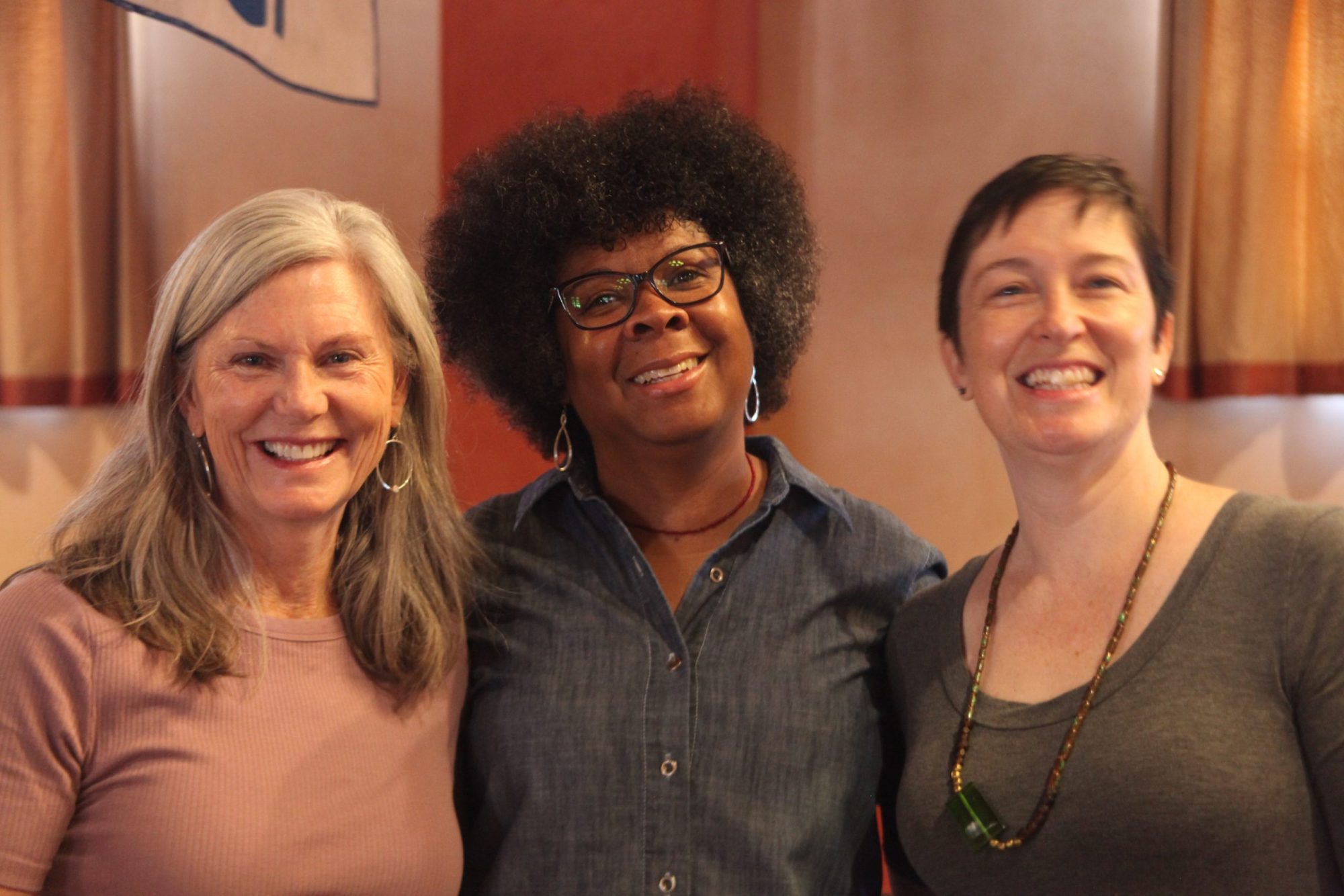Why spiritual direction/companionship? Anyone wanting to deepen their relationship with the Divine, Great Spirit, God, etc. – the sense of how we are all part of something greater, can benefit by meeting with one who is willing to walk the journey with them, listen to them, and support them in creating spiritual practices for everyday living and overall spiritual wellness. Spiritual Direction is NOT therapy, counseling, or pastoral counseling
What Does a Spiritual Direction session consist of? Spiritual direction is the practice of being with people as they attempt to deepen their relationship with the Divine, God, Allah, Great Mystery, Higher Power, etc, or to learn and grow in their own personal spirituality, faith or to explore their questions. The person seeking direction shares stories of their encounters of the divine, or how they are cultivating a life attuned to spiritual things, The director listens deeply and elicits questions from the directee to facilitate their process of reflection, expansion and spiritual growth.
How do I find a Spiritual Director? Spiritual Directors International (SDI) is an organization devoted to providing resources to those who offer spiritual direction. Based in Seattle, they maintain a data-base of spiritual directors across the country. https://www.sdicompanions.org/find-a-spiritual-companion/ You may also wish to inquire within your own faith community for someone who has had training in Spiritual Direction/Companionship.
How often does one go for Spiritual Direction and how long is a session? This decision should be made at the initial orientation meeting. Many have found a once-a-month pattern works well. A regular spiritual direction session usually lasts one hour, but is sometimes longer as Spirit moves in Kairos time not Kronus time. The initial orientation meeting may be scheduled longer than one hour.
How are Spiritual Directors trained? Many programs around the country offer education for spiritual directors, including Tacheria Interfaith School for Spiritual Direction in Tucson and Wisdom’s Way Interfaith School in Phoenix.. Most programs offer a “certificate of completion”, for spiritual direction training. Since spiritual direction is a personal calling, education and skill development is offered – certification by an organization is not. At the orientation meeting with a potential spiritual director, it is appropriate to ask how they felt called to be a Spiritual Director and if they have any formal education
How are Spiritual Directors supervised and held accountable? Most Spiritual Directors are encouraged to follow the guidelines for Ethical Conduct https://www.sdicompanions.org/media/guidelines-for-ethical-conduct/. Often this is with their own spiritual director or in a supervision group. At the orientation meeting, it is appropriate to ask if they are in a active relationship of supervision. Social workers and others in helping professions are expected to be mature people and have supervision in their work. We at Tacheria believe that clergy and others in positions of spiritual leadership should follow the guidelines for ethical conduct as written by Spiritual Directors International (SDI).
What if I don’t click with my Spiritual Director? Since the Great Mystery, God, Allah etc. is revealed in the spiritual direction process, each experience is an invitation to growth and development. Talking openly and honestly with a spiritual director about the challenges and discomforts in the relationship can lead to insight, transformation and growth. If, however, both people involved feel they have come to an end of their relationship, a session to celebrate their work together should be planned and the directee sent into a new season of their spiritual life with someone else.
Is it appropriate to go to a Spiritual Director outside my denomination or faith group? Since spiritual direction is concerned with a person’s experience with God, the Divine, Great Mystery, etc., issues of doctrine and theology take a secondary role. In other words, the ideas that separate us are less important than discovering how the presence of Spirit transforms us. For this reason, it can be beneficial and transformational to work with a Spiritual Director whose spiritual life and experience of prayer are different than our own if they are open to an interfaith approach.
What is the difference between Spiritual Direction and therapy? The word therapy comes from the Greek word, therapia meaning “to nurse.” By definition a nurse offers the necessary care to restore an ill person to health. Psychological therapy focuses on psychological illnesses or problems that keep someone from living as a healthy human being. Directors and directees need to be open to the fact that some therapeutic work may be necessary to address specific wounds, blocks or problems in the life of the directee. The process of discovering these needs is often a normal part of the spiritual direction relationship and should be taken seriously. If both people involved agree that therapy would be more appropriate, the director should be prepared to make a referral and help the directee make a transition into the therapeutic relationship. Confidentiality in spiritual direction should be treated in the same formal and legal manner as any other form of counseling. If appropriate boundaries are maintained by those involved, direction and therapy can go on simultaneously and could be complimentary aspects of a person’s inner work.
How are spiritual directors paid? Because Spiritual Direction is a formal professional relationship of nurture, time, support and presence, it needs to be valued accordingly by both people involved. It is often true that paying for this kind of on-going support deepens the commitment of the directee. However, in some cases the spiritual director will not seek to be paid. Some directors are part of a religious community and prefer payment to be made to the community.
